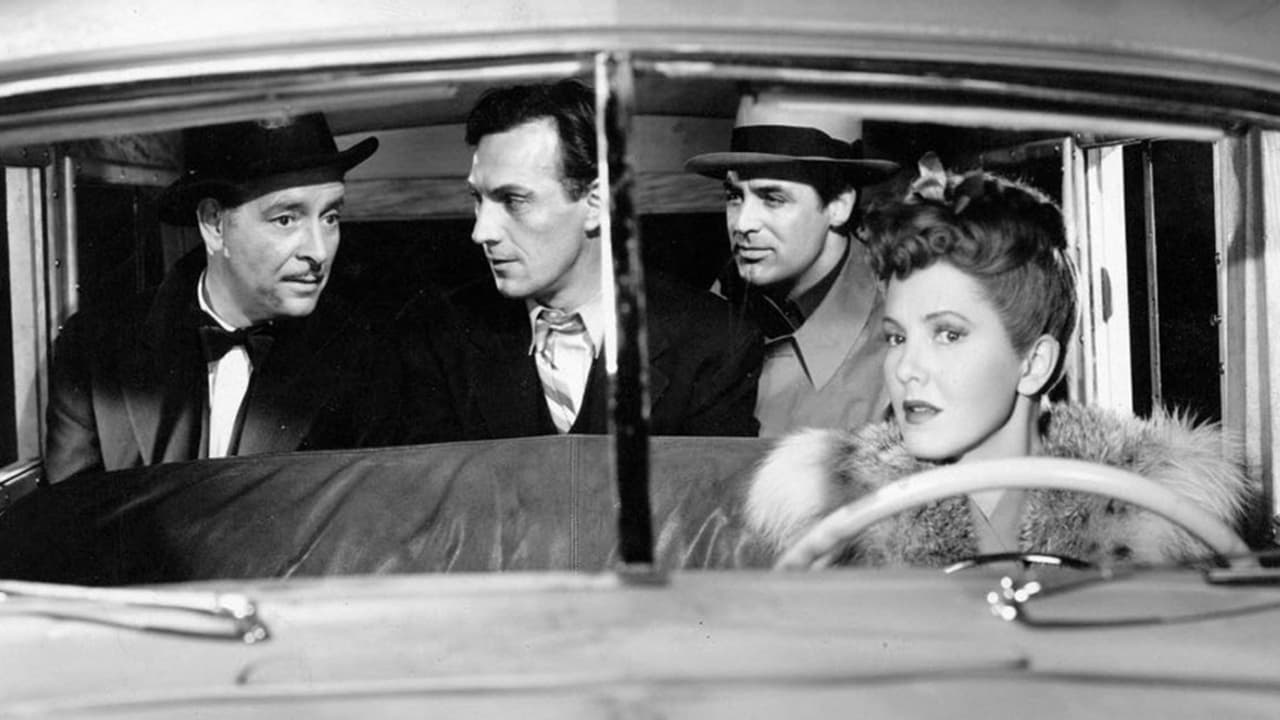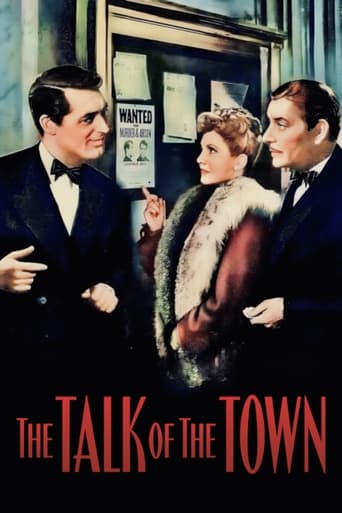

I like the storyline of this show,it attract me so much
... View MoreExpected more
... View MoreA brilliant film that helped define a genre
... View MoreI cannot think of one single thing that I would change about this film. The acting is incomparable, the directing deft, and the writing poignantly brilliant.
... View MoreAn essential comedy drama from producer-director George Stevens that features an outstanding cast: the powerhouse triumvirate of Cary Grant, Jean Arthur, and Ronald Colman in leading roles, and a solid supporting cast headlined by Edgar Buchanan.Nominated for Best Picture, it also received Oscar nominations for Sidney Harmon's original story, its Sidney Buchman-Irwin Shaw screenplay, its B&W Art Direction-Interior Decoration and Cinematography, Editing and Score. Dale Van Every is credited for writing the adaptation. Though an early work for Shaw, who wrote the play that became Out of the Fog (1941), Buchman brought significant (screwball, comedy) credentials to the project - Holiday (1938) with Grant, Mr. Smith Goes to Washington (1939) with Arthur, an Oscar win for Here Comes Mr. Jordan (1941); he'd also just worked with Grant on The Howards of Virginia (1940).Grant and Arthur had successfully collaborated with Howard Hawks on Only Angels Have Wings (1939). Arthur and Stevens would work again on a similarly subtle political comedy The More The Merrier (1943) and the actress's last picture, the quintessential Western Shane (1953). But this film represents the only time that the two suave Britishers would ever appear together on screen.Colman plays Judge Michael Lightcap, a law professor come Supreme Court nominee from Boston that's renting a house in Lochester for the summer (to write a book) from schoolteacher Miss Nora Shelley (Arthur), the prettiest girl in town per Leopold Dilg (Grant), a fugitive who's hiding out in Shelley's attic after being framed for arson. Because Lightcap is unaware of this harboring situation, and Dilg is unable to travel per an ankle sprained during his escape, Nora tells the judge that the fugitive is her gardener named Joseph. The two men become fast friends despite but because of their differing points of view on the law - stuffy Lightcap's is theoretical whereas practical Dilg's is more reality based - and mutual love of chess.Buchanan plays Sam Yates, a local lawyer that's also a former classmate of Lightcap's; he and Nora try to get Lightcap involved in Dilg's case even though the judge wants and needs to remain uninvolved per his pending nomination/confirmation to the Supreme Court bench. During the course of events, both Lightcap and Dilg become attracted to Miss Shelley.
... View MoreGeorge Stevens directed this comedy/drama starring Jean Arthur as Nora Shelley, who owns a boarding house in New England where she is staying, along with noted Harvard Law School professor Michael LightCap(played by Ronald Colman) who is working on a book. Joining them is Leopold Dilg(played by Cary Grant) who is said to be the gardener, but in reality is an escaped prisoner accused of arson and murder regarding a reputedly unsafe factory. Leopold claims his innocence, and when the professor gets wind of this, resolves to help him prove it by conducting his own investigation... Thoughtful and smart film with a good cast and involving story, with a most subdued performance from Grant(which makes for a welcome change!) Well worth seeking out.
... View MoreWhy were we fighting against he Axis? Until quite recently, this country stood for the rule of law. Under the guise of a love triangle, and scripted by Irwin Shaw, this wonderful film shows what America once stood for against the the caprice, injustice, and atrocity that characterized our enemies. As the plot unfolds, the rule of law and fact becomes clearer and ultimately prevails against fear manipulated through tainted journalism.There'a another film, released in England a year later, entitled "The Life and Death of Colonel Blimp." It's thesis is that you lose a war when you lose your national values and adopt those of your enemies.Frank Capra directed a major series of films during World War II--"Why We Fight." These two films put a personal, home-front slant on it.
... View MoreThe plot of this movie is quite easy to follow. An up and coming Supreme Court Judge and Law Professor get a dual lesson in law and how it can be abused prior to taking the bench. George Stevens stays the course Directing this and amazingly treads the line between Comedy and Drama. This is not a line that is easy to follow.Ronald Coleman actually steals this film from Cary Grant in many of the sequences. Jean Arthur is about as good as in any film she ever did and she did some good ones. The hardest part to understand of this film is the ending where Arthur chooses Grant over Coleman. The really is not the basis for that in the story. Edgar Buchanan (Uncle Joe of the Shady Rest Hotel on Petticoat Junction) leads a solid supporting cast. Dilge (Grant) is the subject of a man hunt from the beginning of the film until the end. Arthur spends the film hiding him though exactly why is not real clear. The script seems to assume she is in love with him before he is arrested. Coleman is the law professor who is there to write a book before going to the Supreme Court, He is the outsider who gets pulled into the web that Arthur and Buchanan are orchestrating trying to protect Dilge and not tell Coleman who he is while at the same time trying to convince him that Dilge is being railroaded by a fanatic justice system without evidence.It's a crazy law lesson that once seen, is not easily forgotten.
... View More